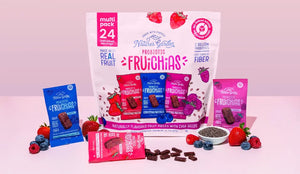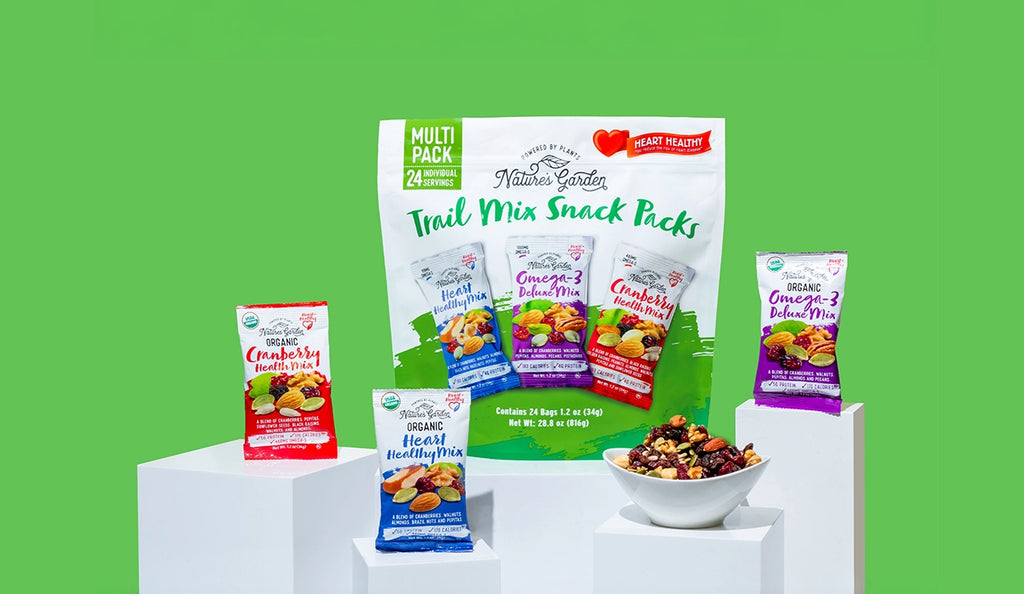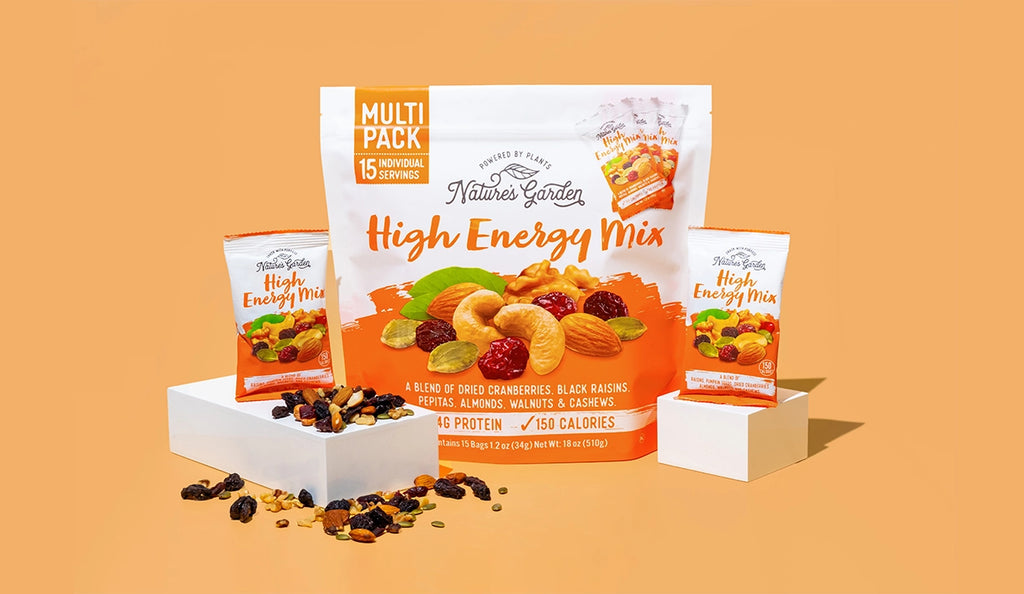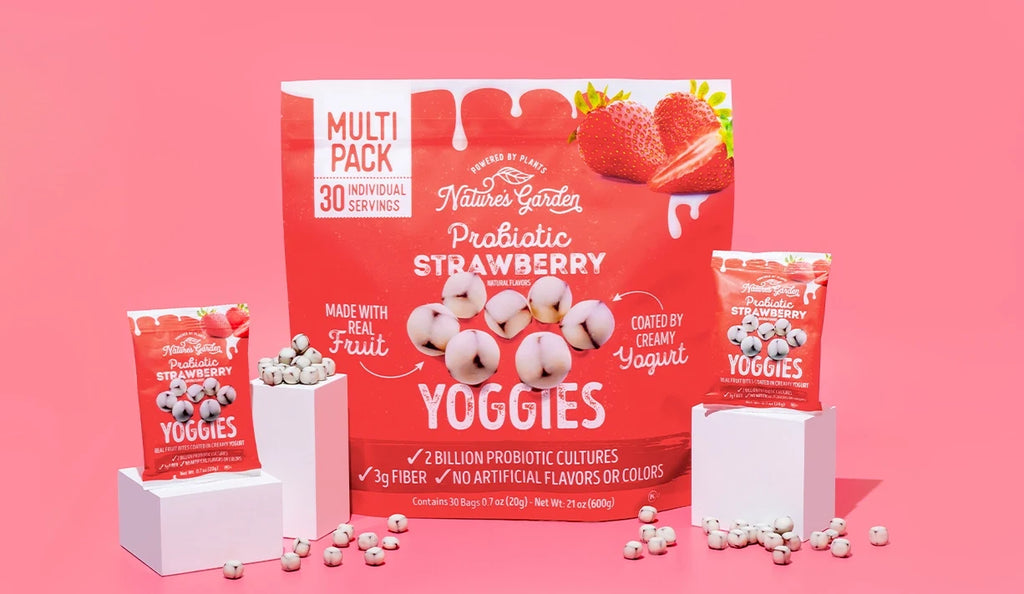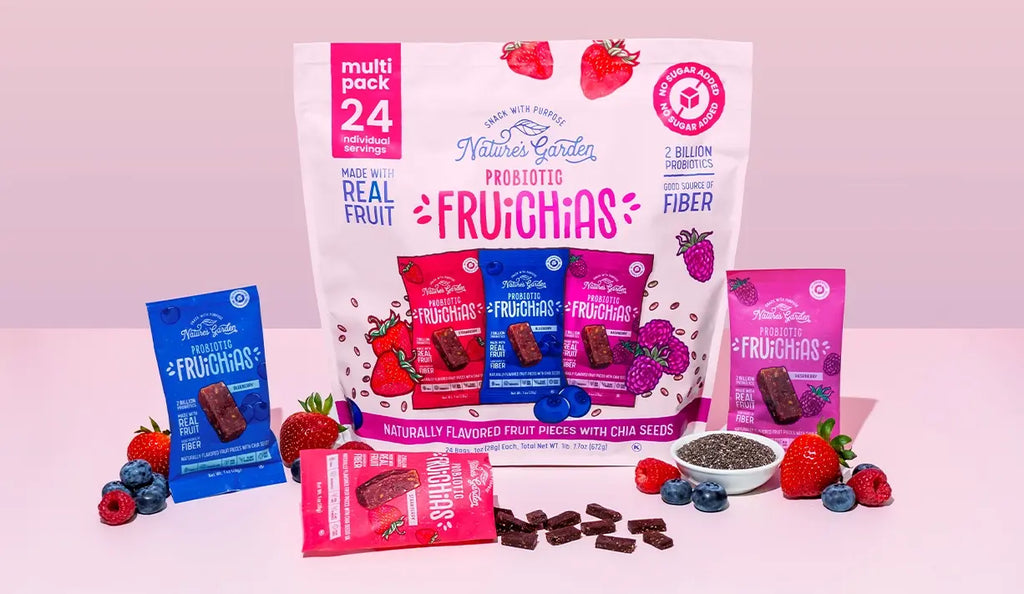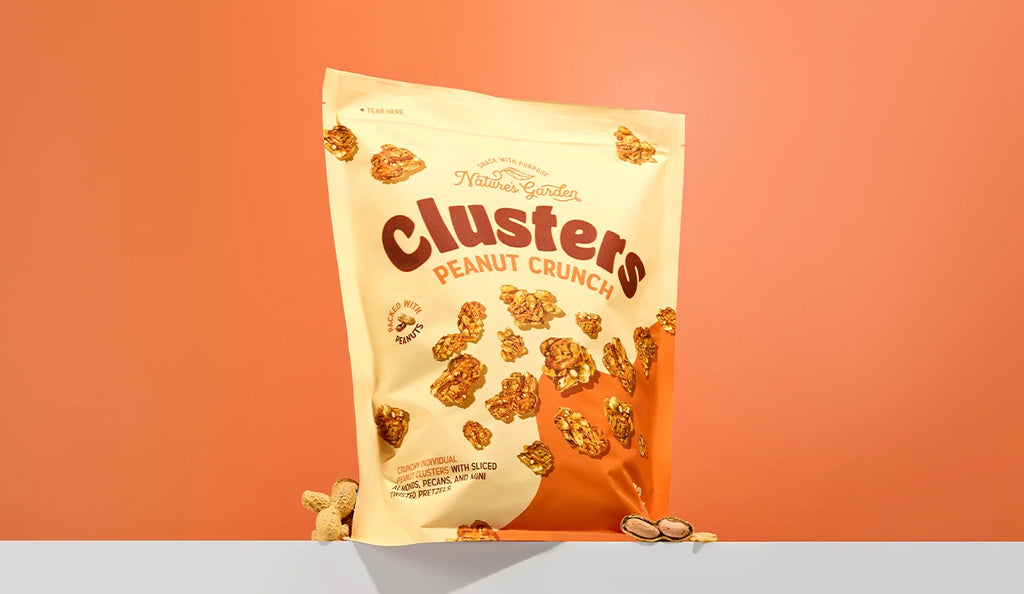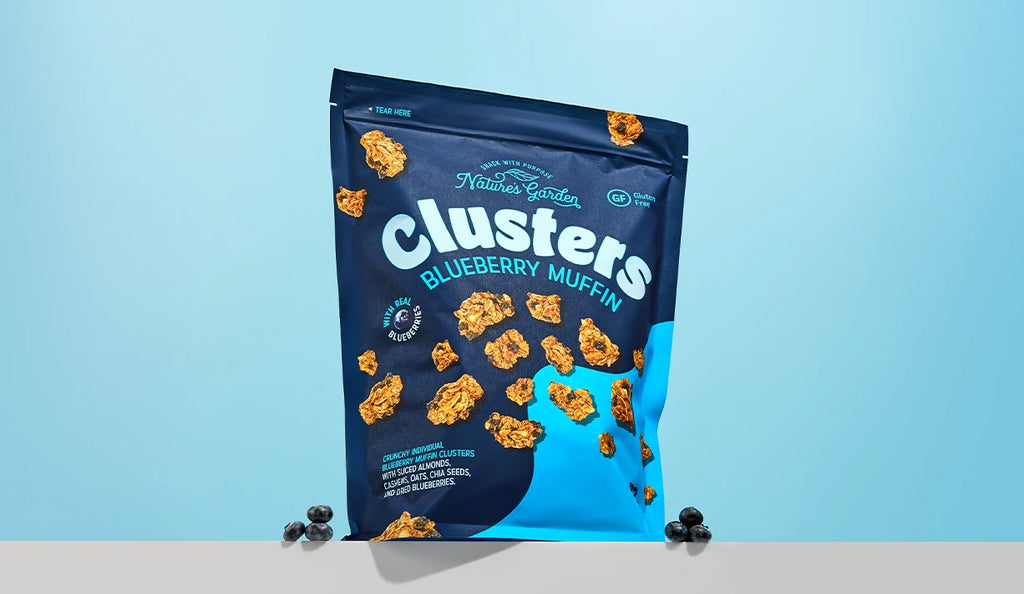If you're interested in nutrition and gut health, you've probably heard about probiotics for digestive health. You may have even bought yogurt or other probiotic-rich foods to add to your snack roster. But what are probiotics, and what's the best way to add them to your diet?
In this blog post, we dive into the world of probiotics. Find out everything you need to know, including how probiotics work, where they come from, and why they're important for digestion, immunity, and overall well-being.
What Is a Probiotic?
Probiotics are beneficial live microorganisms — usually, different types of bacteria and yeast — that exist in your gastrointestinal tract. Most people have thousands of diverse probiotic strains. Collectively, they're called the "gut microbiome."
How Probiotics Work in the Gut Microbiome
When you eat foods that contain probiotics, the bacteria travel through your digestive system until they reach the large intestine. There, they get to work on several tasks, including:
- Supporting digestion
- Boosting immunity
- Reducing inflammation
- Absorbing nutrients
The way a probiotic works in your gut microbiome depends on the type. Some strains of bifidobacteria can help reduce cholesterol and boost antioxidant activity. A probiotic called saccharomyces boulardii has been shown to support the body in fighting diarrhea.
One of the most important functions of probiotics is to build a healthy gut microbiome — a diverse and well-balanced collection of microorganisms. When your microbiome is strong, your body is more prepared to fight off diseases, maintain a strong metabolism, and build better health.
How Probiotics Support Digestive Health
Probiotics support digestion by helping the body break down food and produce necessary substances. Some types, including lactobacillus, help metabolize the carbohydrates you eat. This process generates lactic acid, an important fuel source in the body.
Probiotics, including bifidobacteria, break down certain types of fiber, creating short-chain fatty acids. Your body needs SCFAs for energy, inflammation control, immune regulation, and disease prevention.
The probiotics in your system work together to support your digestive system and help it function effectively. They help reduce any bad bacteria that could cause diseases, slow digestion, or create constipation. And if your body doesn't produce enough digestive enzymes, probiotics can fill in the gaps and help you process food effectively.
Do Women Need Specific Probiotics?
Women don't necessarily need specific probiotics, but they may get additional benefits from a well-balanced intake. Lactobacillus, in particular, may help improve the vaginal microbiome. Researchers have also found evidence that probiotics can benefit women who have polycystic ovary syndrome.
If you're pregnant, your doctor may recommend probiotics. In addition to supporting digestion and keeping illnesses at bay, some studies show these helpful bacteria could prevent certain pregnancy-related conditions, such as obstetric anemia.
What's the Best Way to Consume Probiotics?
You can up your intake of probiotics through food and supplements. For many people, food is the easiest way to consume probiotics. These beneficial microorganisms are primarily found in fermented foods such as yogurt, sauerkraut, miso, and kefir. Sometimes, they occur naturally; in some cases, they're added during the fermentation process. You can also try snacks such as probiotic apricots.
If you have specific health needs, are allergic to probiotic foods, or want to increase the diversity of probiotics in your gut microbiome, you might take a supplement. Many probiotic supplements feature a broad range of helpful bacteria that might be harder to get through food.
Some supplements are made with probiotic strains that have specific functions in the body. For example, certain strains of bifidobacterium have been shown to help with symptoms of irritable bowel syndrome. People with IBS might opt for high-concentration supplements to maximize relief.
How Are Probiotics Different From Prebiotics?
Prebiotics are substances your body isn't able to digest. Instead, they travel through the digestive system until they reach the large intestine, where they're used as fuel for probiotics. Getting enough prebiotics in your diet is a great way to nourish and grow the probiotics in your gut microbiome.
Many people get prebiotics through food, but supplements are also available. Plants are the most common source of prebiotics — you can find them in beans, vegetables, berries, whole grains, bananas, garlic, onions, and many other foods.
Here's the important thing to know: Different types of probiotics consume different prebiotics. To encourage a diverse gut microbiome, try eating a wide range of prebiotic foods.
Eating Probiotics and Prebiotics Together
One way to improve gut health is to eat prebiotic and probiotic foods together. As they move through your body, the probiotics consume the prebiotics. This may help the probiotics stay alive until they reach your large intestine. At the same time, the prebiotics can amplify the beneficial effects of the probiotic. When a probiotic and a prebiotic have this type of synergistic relationship, they're called synbiotics.
So, if you're serious about probiotics for digestive health, consider combining them with a prebiotic. One great combination is berries (prebiotic) and yogurt (probiotic). You can also swap out the berries for bananas or another fruit. Other snacks for gut health include sauerkraut with vegetables or kimchi with carrots and onions.
Finding the Best Snacks for Gut Health
Don't have time to prepare prebiotic and probiotic combinations at home? Nourish your gut microbiome on the go with Probiotic Yoggies from Nature's Garden. They combine prebiotic fruits and probiotic yogurt into portable, tasty treats you can enjoy anywhere.
Nature's Garden uses a patented microencapsulation system that helps probiotics survive in your body and thrive in your gut. It's an easy, delicious way to build a healthier digestive system, all without spending extra time in the kitchen. These snacks are great for the entire family — tuck a pack in your kids' lunches, or slip some into your bag for a burst of fiber and flavor at work.
If you're looking for ways to increase your intake of probiotics for digestive health, grab a pack of probiotic fruit snacks, including strawberry, cherry, or mixed berry options, for your next adventure.
